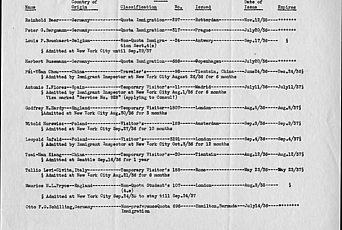Shizuo Kakutani
Affiliation
Shizuo Kakutani first came to the School of Mathematics as a Member in 1940 to work with Professor Hermann Weyl, who had noticed Kakutani’s work as a postgraduate at Osaka University in Japan. Aided by seminars run by Weyl and John von Neumann, Kakutani developed what is known as the Kakutani fixed-point theorem, which became an important tool in analyzing social systems, and played a key role in the equilibrium concept for noncooperative games developed by Member John Nash for which Nash won the Nobel Prize in economics in 1994. After World War II, Kakutani was one of several Japanese scholars with whom the Institute struggled to reestablish contact. In a letter requesting permission for Kakutani to travel to the Institute, J. Robert Oppenheimer, Institute Director from 1947–66, wrote to General Douglas MacArthur, Supreme Commander of the Allied Powers in Japan, “In granting permission to Dr. Kakutani to return to America much would be done to evidence our friendship for the democratic forces within Japan, and for the men of learning who remained loyal to us throughout. It need hardly be added that we ourselves will profit very much by the collaboration which Dr. Kakutani’s visit would offer, and from learning at first hand of the work he and his colleagues have been carrying out.”
